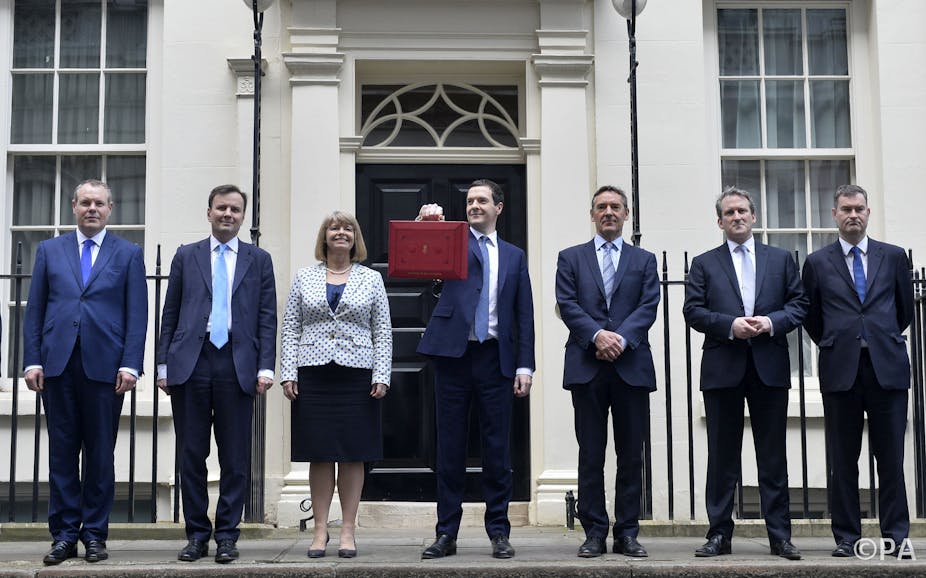George Osborne, the UK chancellor, announced that corporation tax will be cut to 17% in 2020. But why stop there? There’s a very good case for thinking the unthinkable and getting rid of corporation tax altogether.
For one thing, corporation tax does not bring in huge tax receipts. Last year the onshore component brought in 8% of all UK tax. And this is a gross figure, which excludes the tax credits that taxpayers receive on dividends (to be replaced in April by a tax-free allowance). By my reckoning, the true contribution that corporation tax makes to the tax take is more like 6%.
Corporation tax has been raising less and less money worldwide in recent years because governments have been competing with one another to reduce rates. Having peaked at 13% of global GDP in 2006, it was down to 7% by 2014. There’s every reason to assume that this trend will continue, particularly as multinationals become better at avoiding tax liabilities in any one country. Why fight this race to the bottom?
But there’s another important argument for why corporation tax matters less than you think: get rid of it and the money would still reach the government in other ways. Suppose a company with 100m shareholders has decided to distribute all its after-tax profit of £50m to its shareholders - a dividend of £0.50 a share would be paid. That means that a shareholder with 10,000 shares would receive a £5,000 dividend. Assuming this was their only dividend income that year, they would pay no tax on it because of the £5,000 dividend allowance.
Now consider what would happen if there was no corporation tax and no dividend allowance. The person receiving the dividend would be taxed on it as if it were any other income. Instead of the tax liability disappearing, it simply shifts from company to individual. Assuming they were a basic-rate taxpayer being taxed at 20%, this would mean that the company would have to pay them a dividend of £6,250 for them to receive £5,000. It makes you realise that under the current system, corporation tax is effectively a pre-paid income tax.
FAQs
Yet if you were going to shift the tax liability to the person receiving the dividend in this way, you might have spotted an issue. Most companies do not distribute all of their profits to shareholders. UK companies pay out about 50% of profits as dividends. And some, such as Ryanair, don’t pay dividends at all. So would HMRC lose out?

The answer is no. Get rid of corporation-tax liability and the share prices of companies would rise to reflect their extra net worth. The lower the dividend payout, the higher the share price. When shareholders sell their shares, this means they will make a higher capital gain, which means greater income-tax receipts for HMRC.
You might be wondering whether in a system like this, people would be more likely to invest in something other than shares and that the tax receipts would therefore be lost. I suspect companies would still look like a good investment overall, particularly because they would have become worth more and investors value the protection afforded by limited liability.
There is still the problem that governments want their money sooner rather than later since they have to fund public expenditure. Relying on tax receipts from dividend/share-sale income would potentially be slower than getting them from corporation tax. You could get around this by levying a withholding tax of say 20% on companies when they pay dividends – meaning the dividend income would be paid net of the withholding tax, which the company would be responsible for paying to HMRC – in a similar way to how VAT works. And levying a withholding tax, say 2%, when a shareholder sells shares.
You would then have to adjust the individual’s tax liability to take account of these withholding taxes. This would encourage taxpayers to declare all their income and complete tax returns, since they may be entitled to a tax refund. If you wanted to encourage them further, you could set the withholding tax at a higher rate – say 40% for dividends.

Yes this system brings its own complexities, but they are not insurmountable. There is no perfect tax system. And shifting the corporation-tax burden to the individual would have other benefits. HMRC would transfer resources devoted to corporation tax to income taxes, which should bring in more tax receipts. Many people, including Labour leader Jeremy Corbyn, argue that a better-resourced tax authority would benefit in this way.
Companies would save money since they wouldn’t have to pay their accountants to deal with corporation tax. Needless to say it would create a more business-friendly environment, which would make the UK a more attractive place for companies to invest – and I say all this as a believer in public services and progressive taxation. Once you recognise that doing away with corporation tax doesn’t mean losing tax revenues, these benefits hopefully become more persuasive.

